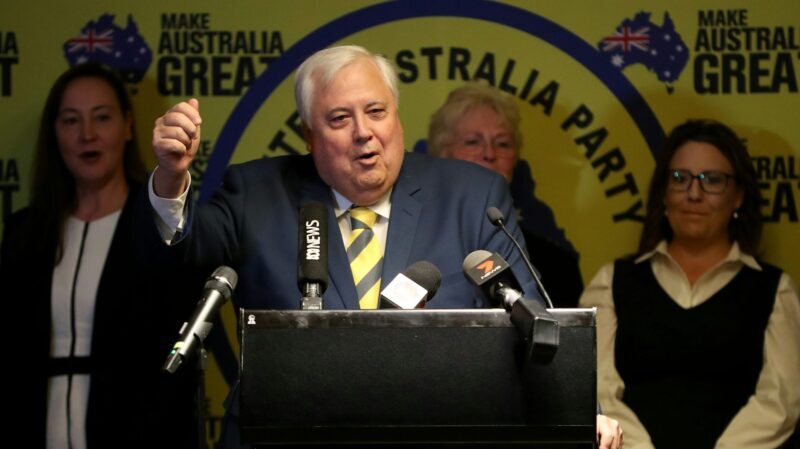The recent Electoral Reform Bill does not remove big money from politics, as Labor decreed, but shifts it towards the major parties, masking fundamental issues with the law. Professor of Law Richard Cullen explains.
Recently enacted federal legislation applying limits on individual electioneering funding and expenditure has proved to be controversial. Meanwhile, another bout of (judicial) law-making over 30 years ago related to elections has long menaced the operation of Australian democracy at each passing election.
Late last year, the Albanese government and the federal opposition agreed to enact new election-related, political donation and spending caps to come into effect after the approaching 2025 federal election.
These changes drew sharp criticism from cross-benchers, who accused the major parties of a “stitch up.” Independent Zoe Daniel argued under the new provisions, “An independent might have a cap of $800,000 to spend on an election campaign, the major parties would retain an advertising war chest of around $90 million.”
The government countered that the changes would “level the playing field” and “take big money out of politics.” Michelle Grattan noted that the ALP has been particularly galvanized in advancing these new laws by the huge election spending of Clive Palmer, “who outlaid $123 million at the last election.”
Clive Palmer spending
In fact, Mr Palmer has been spending heavily, seeking election success, for well over a decade. However, without the help of the High Court of Australia over 30 years ago, he would not have been able to do this.
In 1992, the Labor government introduced new legislation banning paid political broadcast election advertising. The responsible Minister, Kim Beazley, said the government wanted to halt movement towards a situation such as applied in the US where it was “virtually impossible for anyone but the very rich to participate in the political process.”
Soon after a consortium of commercial TV broadcasters (as one might expect) challenged the new law in the High Court in Australian Capital Television Pty Ltd v Commonwealth.
Unlike many others, the Australian Constitution does not contain a specific, written Bill of Rights. Notwithstanding this absence, a clear majority in the court discovered that the constitution did contain an implied right to “freedom of political communication” and the new law was struck down because it contravened this freshly discovered, fundamental right.
The fact that a primary High Court case from 1920 (the Engineers case) expressly rejected the view that the High Court could rely on implications arising from the Constitution to resolve cases, did not impede the court’s reasoning. The court stressed how this new, implied freedom was
an indispensable part of the system of representative and responsible government created by the Constitution.
This, then, was the originating case which created the wide-open door though which Mr Palmer subsequently passed with his electioneering millions, legally free to spend them as he wished in supporting himself and others, using all forms of media, across a range of elections for over a decade.
High Court understanding
How universal, though, is this High Court’s understanding of the necessity of maximizing media political marketing freedom to buttress the democratic process?
In 1955, following the passage of the Television Act (1954) in the UK (by a government led by Winston Churchill), the Independent Television Network (ITV), which introduced commercial television advertising to Britain, began broadcasting. The passage of the Television Act not only created ITV but also introduced a complete ban on paid political broadcast advertising in the UK, which has continued to this day.
This total ban on paid political broadcast advertising was finally challenged after passage of the UK Human Rights Act (1998), which gave local effect to the European Convention on Human Rights in Britain. Article 10 explicitly guarantees the right to freedom of expression and information.
In 2008 (in the Animal Defenders Case), the House of Lords found unanimously that the total ban was compatible with Article 10 because the ban ultimately reinforced the democratic process by securing a more level field for political contestation. In particular, Baroness Hale stressed the need to avoid the sort of slanting of the political process arising from unwarranted political broadcast advocacy (such as one seen in the US) by wealthy segments of society.
So there we have it:
- The High Court in Australia concluded, in 1992, that striking down a new law banning paid-for political broadcast advertising was crucially required to help sustain Australia’s system of democratic governance – and a newly discovered, implied right in the constitution mandated this outcome.
- Meanwhile, around 16 years later, the House of Lords in the UK found unanimously that the 1955 total ban on paid-for political advertising was entirely compatible with the explicit freedom of expression guarantee in Article 10 of the UK Human Rights Act because this ban reinforced the democratic process by securing a more level field for political contestation.
The recent federal legislation applying new, serious caps on election spending is, in part, helping to clean up the manifest, adverse aspects of that High Court decision in 1992. That the major parties have also spied an opportunity to disadvantage their cross-bench foes at the same time looks to be as clear as it is unsurprising.
The American way. Electoral reform bill to entrench major parties’ power
Richard Cullen is an Adjunct Professor in the Faculty of Law at the University of Hong Kong. He was previously a Professor in the Department of Business Law and Taxation at Monash University in Melbourne, Australia.

